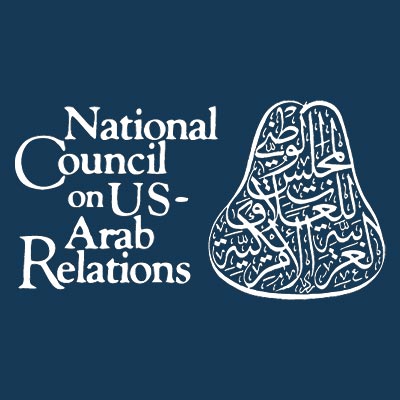Arab summit issues Doha Declaration
Source: The Gulf Today (Read full story)
…
It also strongly condemned the Syrian regime’s use of heavy weapons, warplanes and Scud missiles to bomb the crowded residential areas. The declaration welcomed the takeover by the National Coalition for Syrian Revolutionary and Opposition Forces to Syria’s seat in the Arab League, its organisations, councils and organs. It emphasised the importance of efforts being taken in order to reach a political solution as a priority for the Syrian crisis, while stressing on the right of each member state, in accordance with its wish, to provide all means of self-defence, including military support to back the steadfastness of the Syrian people and the free army. The declaration also lauded the initiative of the Emir of Kuwait Sheikh Sabah Al Ahmad Al Jaber Al Sabah to host an International Donors’ Conference for the Syrian people that was held on Jan.30, 2013.
…
Arab League welcomes Syrian opposition
Source: Aljazeera (Read full story)
…
Hamad bin Khalifa Al Thani, the emir of Qatar, opened the conference on Tuesday by inviting Moaz al-Khatib, the president of the Syrian National Coalition, to take Syria’s seat.
He told the audience of kings, emirs and presidents that he still supports a “political solution” to the crisis in Syria, but one that does not “rewind the clock.”
…
Qatar urges $1bn Arab fund for East Jerusalem
Source: Aljazeera (Read full story)
Qatar has proposed the creation of a $1bn Arab fund for occupied East Jerusalem, which Palestinians say should be the capital of an independent state under any peace deal with Israel.
Sheikh Hamad bin Khalifa Al Thani, Qatar’s emir, offered on Tuesday to contribute $250m to the fund, and acknowledged that past promises to aid the Palestinians have gone unfulfilled.
…
Arab Summit in Doha proves Arab League still relevant on Syria conflict
Source: The National (Read full story)
…
Qatari Emir, Sheikh Hamad bin Khalifa Al Thani, said that a political solution that does not take the situation in Syria back to square one is acceptable, a clear departure from recent statements of rejecting any negotiated settlement with the regime.
…
Busted spy network ‘directly linked to Iranian intelligence’
Source: Arab News (Read full story)
Saudi Arabia confirmed yesterday that the alleged spy cell busted last week had “direct links” with Iranian intelligence. It said legal measures would be taken against the cell’s 18 members that include 16 Saudis.
“Preliminary investigations and physical evidence that has been collected as well as the defendants’ statements have all revealed direct links between the cell and Iranian intelligence services,” said Maj. Gen. Mansour Al-Turki, spokesman of the Interior Ministry.
…
Labor law violators face tough punishment
Source: Arab News (Read full story)
Saudi Arabia will not allow anybody to violate its labor and residency regulations and take toughest punitive measures against violators, Labor Minister Adel Fakeih said yesterday.
“The Kingdom will not allow anybody to continue violating its regulations because it harms public interests. If the laws are not followed, the interior and labor ministries will take maximum measures by law against the violators,” he told reporters.
…
GCC plans unified recruitment system for housekeepers
Source: Arab News (Read full story)
…
Sahar Al-Kabi, chairperson of the human resources committee at the Federation of GCC Chambers, said it is necessary for the ministers to form regulatory decisions to tackle the increasing number of issues related to household workers in the region and deal with exporting countries’ attempts to impose their conditions. She called for regulations that guarantee the rights of both parties.
“Only having a law to govern the recruitment and work of all labor instead of one specifically for house workers is a big problem in Gulf countries given the large number of household workers in the region.”
…
Saudi Aramco to Become World’s Top Oil Refiner, Al-Falih Says
Source: Bloomberg (Read full story)
…
Saudi Aramco, as the company is known, is expanding refining and petrochemical production to meet domestic demand and export products that can fetch higher prices than crude. It plans to double its global refining capacity to 8 million barrels a day in 10 years, al-Falih said in the eastern Saudi city of Dhahran in January 2012. Exxon Mobil Corp. the world’s largest integrated crude processor, had 5.4 million barrels a day of capacity worldwide at the end of 2012, according to its financial and operating review.
Aramco’s Satorp plant, 37.5 percent owned by Paris-based Total SA, is set to become Saudi Arabia’s largest facility on the Persian Gulf with an overseas partner when it starts this year. The refinery in Jubail on the coast will be able to process 400,000 barrels of Arab Heavy crude a day. The companies have also agreed in principle to expand the plant, Christophe De Margerie, Total’s chief executive, said in Abu Dhabi Jan. 15.
…
The Long Hot Arab Summer
Source: ArabiaLink (Read full story)
The so-called Arab Spring (more accurately described as the Arab Awakening) ushered in a great deal of hope among those who had been fighting or advocating for the democratization of the non-democratic authoritarian governments in most of the countries that make up the Arab world. From the fall of the leaderships in Tunisia, Egypt, Libya and Yemen, to the brutal civil war in Syria, to the increasingly complicated situations in Bahrain, Sudan, Jordan, and Iraq, there has been much talk of a major shift in the nature and prospects of the Arab state. And, of course, such a shift cannot be denied. The political landscape in all of these states has altered tremendously over the last several years, and there is cause for hope in these developments vis-à-vis the renewed state-society contracts that aim to secure a more prosperous future through the improved interactions between the government and its people.
…

